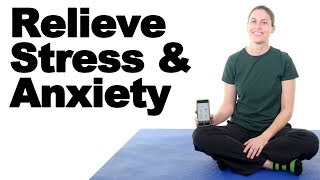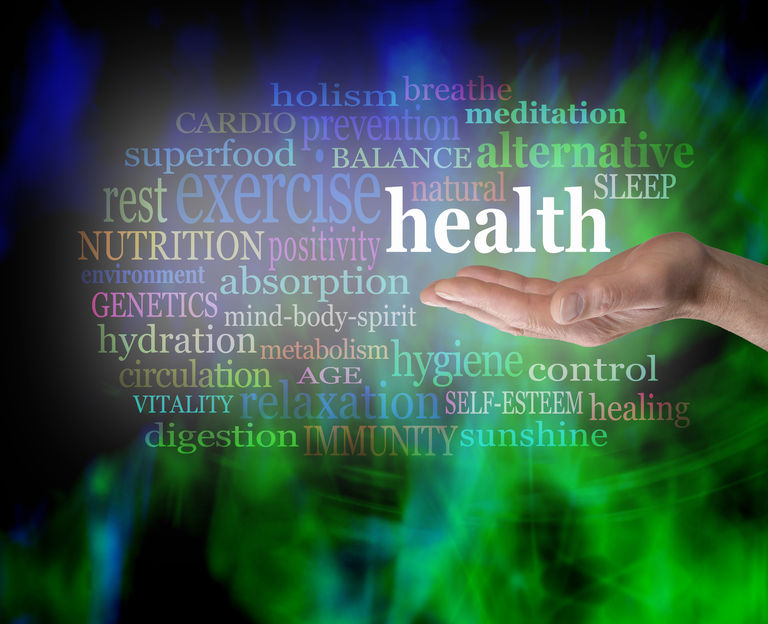How to Manage Stress & Anxiety Naturally 🌿🧘♂️
Stress and anxiety are common in today’s fast-paced world, but there are many natural ways to manage them without relying on medication. By adopting a holistic approach that includes lifestyle changes, mindfulness, nutrition, and physical activity, you can significantly reduce stress and improve overall well-being.
🌟 1. Mindfulness & Relaxation Techniques
🧘♂️ Meditation
- Helps calm the mind, improve focus, and reduce anxiety.
- How to do it:
- Find a quiet place, sit comfortably, and focus on your breath.
- If thoughts come, acknowledge them and return to your breathing.
- Start with 5-10 minutes daily and increase over time.
- Try guided meditation apps like Headspace or Calm.
🎶 Music & Sound Therapy
- Listening to calming music (classical, nature sounds, binaural beats) can help reduce stress.
- White noise or ASMR can help with sleep and relaxation.
📿 Deep Breathing Exercises
- Lowers heart rate, reduces tension, and calms the nervous system.
- Try the 4-7-8 breathing method:
- Inhale for 4 seconds.
- Hold your breath for 7 seconds.
- Exhale slowly for 8 seconds.
- Repeat 4-5 times.
📝 Journaling & Gratitude Practice
- Writing down thoughts can help process emotions and reduce stress.
- Keep a gratitude journal by writing 3 things you are thankful for daily.
💪 2. Physical Activity & Movement
🏃♀️ Exercise & Outdoor Activities
- 30 minutes of exercise daily releases endorphins (natural stress relievers).
- Activities like walking, running, swimming, dancing, or cycling can help.
- Try yoga & stretching for both physical and mental relaxation.
🌿 Nature Therapy
- Spending time in nature (parks, beaches, forests) reduces cortisol (stress hormone).
- Try grounding (walking barefoot on grass or sand) for a calming effect.
🍎 3. Diet & Nutrition for Stress Relief
🫖 Herbal Teas & Natural Remedies
- Chamomile tea – Reduces anxiety and helps with sleep.
- Ashwagandha – An adaptogenic herb that lowers cortisol levels.
- Lemon balm & valerian root – Help calm the nervous system.
🥑 Foods That Reduce Stress
- Omega-3 rich foods (salmon, flaxseeds, walnuts) help brain function.
- Magnesium-rich foods (dark chocolate, spinach, almonds) relax muscles and nerves.
- Probiotic foods (yogurt, kimchi, kombucha) improve gut health, which affects mood.
🚫 Avoid Stress-Inducing Foods
- Limit caffeine and alcohol, which can trigger anxiety.
- Reduce processed foods, refined sugar, and artificial additives.
🌙 4. Sleep & Restful Habits
😴 Improve Sleep Quality
- Maintain a consistent sleep schedule (sleep & wake up at the same time).
- Avoid screens 1 hour before bed (blue light affects melatonin production).
- Create a relaxing bedtime routine (reading, meditation, warm bath).
- Keep your bedroom cool, dark, and quiet.
🛌 Power Naps & Rest Breaks
- A 10-20 minute nap can boost energy and reduce stress.
- Take breaks between work to prevent burnout.
🧑🤝🧑 5. Social Connections & Emotional Well-being
🤗 Spend Time with Loved Ones
- Talking to family and friends provides emotional support.
- Laughter releases endorphins and reduces tension.
🐶 Pet Therapy
- Playing with pets lowers blood pressure and increases serotonin (happiness hormone).
📵 Digital Detox
- Reduce screen time and social media exposure, as they can increase stress.
- Spend more time on hobbies and creative activities.
✨ 6. Professional Support (If Needed)
If stress or anxiety becomes overwhelming, consider:
✅ Therapy or Counseling (CBT is highly effective).
✅ Support Groups – Talking to others who understand your struggles.
✅ Holistic Therapies – Acupuncture, massage, aromatherapy.
🌟 Final Tips: Daily Stress Management Plan
✅ Morning Routine: Meditation + Healthy Breakfast + Stretching.
✅ Midday Break: Walk outside + Hydrate + Deep breathing.
✅ Evening Routine: Journaling + Herbal Tea + No screens before bed.



